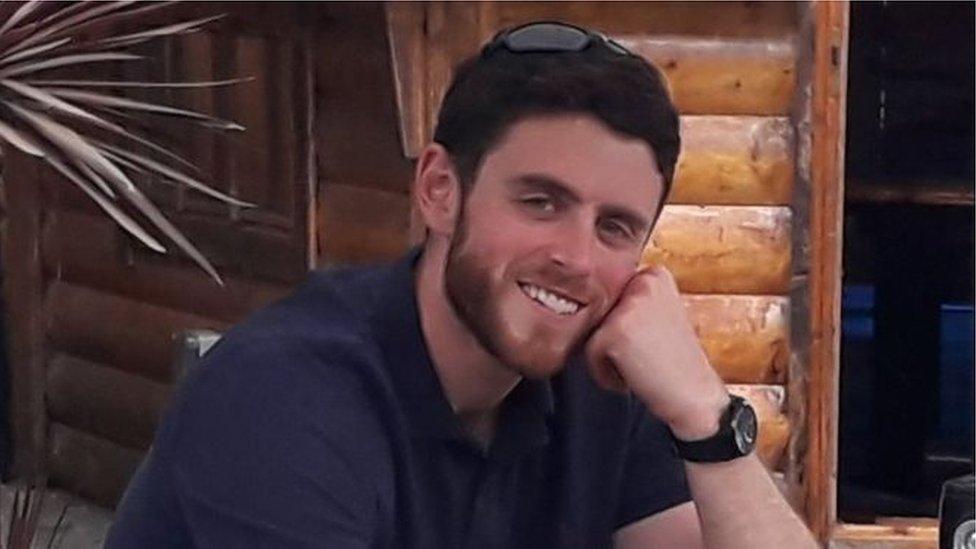PC Harper widow 'horrified' at killers' reported £465K legal aid costs
- Published

Lissie Harper said knowing the amount of legal aid received by the convicted trio made her "more determined than ever" to fight for Harper's Law
The widow of PC Andrew Harper has criticised the reported £465,000 in legal aid received by his killers.
Lissie Harper, 29, said she was "horrified" at the amount spent on "defending the indefensible", after the figure was reported by the Daily Mail., external
PC Harper suffered fatal injuries when his ankles became caught in a strap trailing behind a getaway car in August 2019 and was dragged to his death.
Three men were acquitted of his murder and sentenced for manslaughter.
Mrs Harper, who had been married to her 28-year-old husband for just four weeks before he was killed, said in a statement: "This just doesn't seem right or fair.
"Not only did we not get justice for Andrew, we now know the cost of that injustice.
"I am sure the public - whose support for me has been unstinting - will be as horrified as I am to know how much money is going towards paying this trio's escalating legal costs."
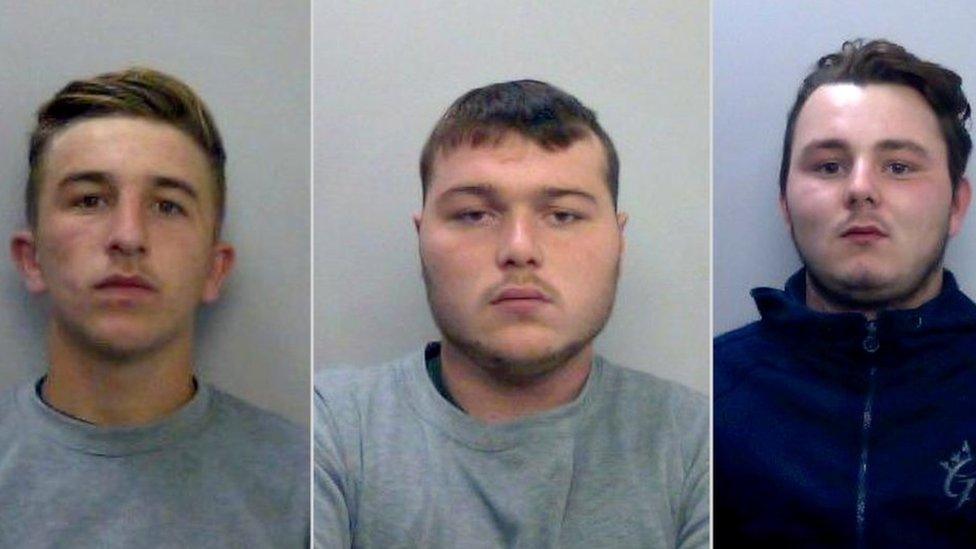
Jessie Cole, Henry Long and Albert Bowers (L-R) were convicted of killing PC Harper
Mrs Harper is campaigning for Harper's Law to ensure those who kill emergency workers are jailed for life.
She said the news of the legal aid costs had made her "more determined than ever to keep on fighting for Harper's Law, which would mean these despicable criminals are jailed for life".
Two of his killers - 18-year-old Albert Bowers and Jessie Cole - last week lodged applications with the Court of Appeal seeking permission to challenge their convictions and their 13-year prison sentences.
Getaway driver Henry Long, 19, who was jailed for 16 years lodged an application on Friday to appeal against his sentence.


There is enormous sympathy for Lissie Harper and for the family and friends of PC Harper following the dreadful circumstances of his killing.
However, it is a foundation of our fair trial system that everyone charged with a criminal offence by the state - with the considerable resources at its disposal - is entitled to legal representation.
The state can, and does, sometimes get it wrong.
To guard against that, those who meet the criteria are entitled to have their representation paid for by the state through legal aid. That includes people who enjoy the press and public's sympathy, and those who don't.
Juries decide on the evidence presented in court whether defendants accused of serious crimes are guilty or not. Lawyers simply provide advice and representation to those accused. The judge is there to ensure that defence lawyers conduct their cases in a proper manner.
There were two lengthy trials in this case involving complex evidence which had to be analysed by the defence legal teams. The first trial had to be abandoned because of the lockdown. All three defendants were acquitted of murder by the jury, meaning that defence lawyers successfully challenged the state's charge of murder.
Parts of the press will inevitably focus on legal aid fees following the acquittal of unpopular defendants by juries, with the implication that such people are somehow not entitled, or less entitled to legal aid.
That flies in the face of what parliament has determined to be the way our fair trial system is funded.

- Published26 August 2020
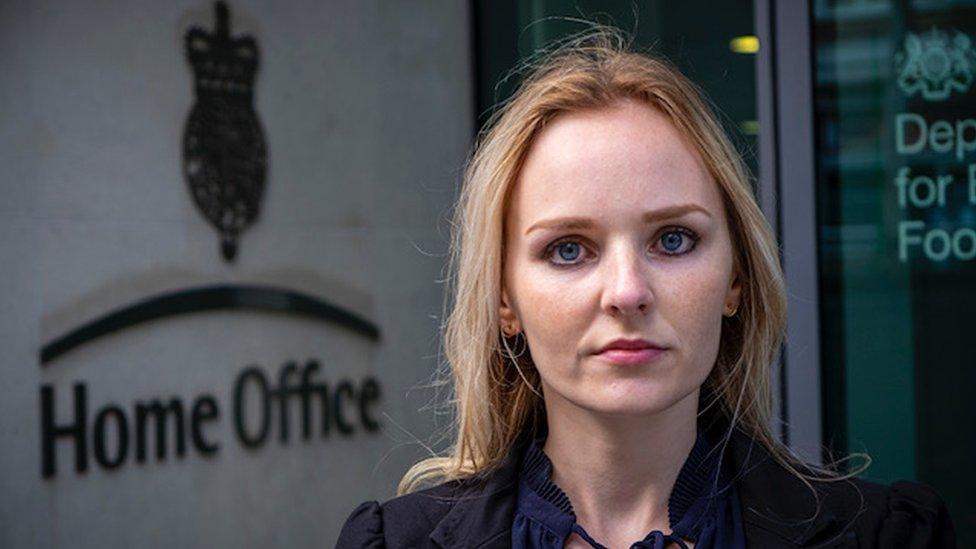
- Published21 August 2020

- Published19 August 2020
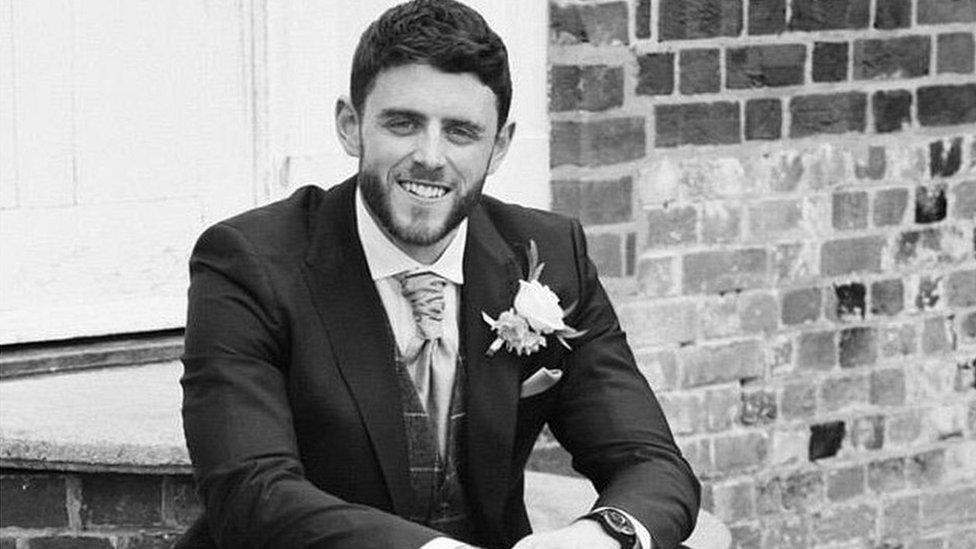
- Published18 August 2020

- Published31 July 2020

- Published6 August 2020

- Published5 August 2020

- Published14 August 2020
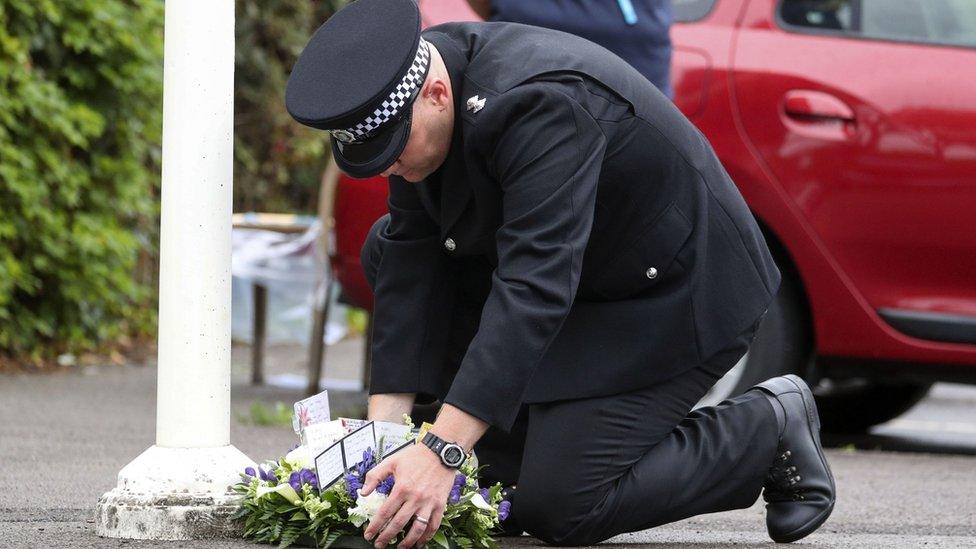
- Published24 July 2020
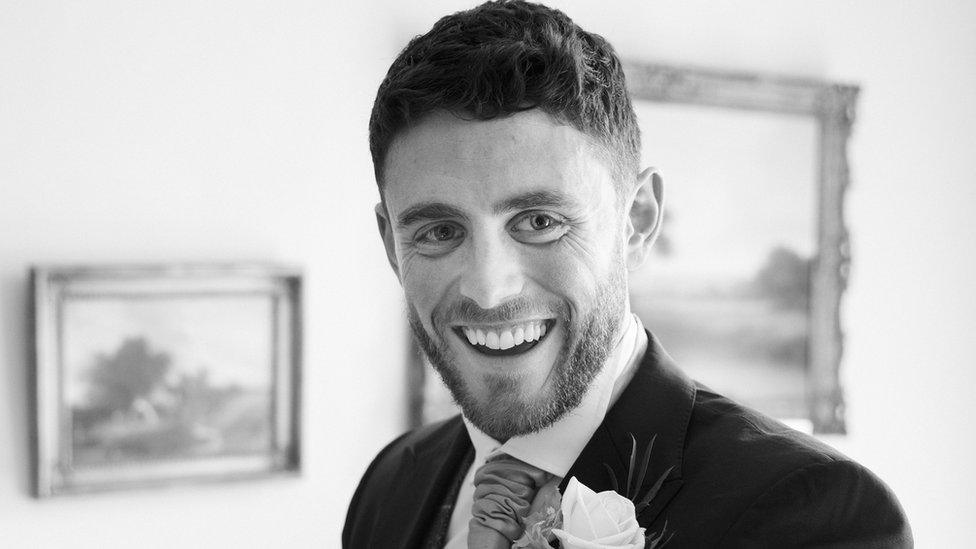
- Published23 June 2020
